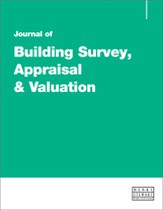Energy efficiency of buildings: The business case
Abstract
Energy efficiency as a concept came to the fore in response to the oil crises of the 1970s. Energy demand reduction is essential as native energy supplies dwindle, to improve energy security and to meet carbon emissions targets. Globally, it is estimated that 30 to 40 per cent of energy is consumed in buildings and, therefore, it is vitally important that improvements are made to the energy performance of the built environment. Consequently, energy efficiency is an area of focus for both EU and UK policy and regulation. Furthermore, owners and occupiers are increasingly demanding more efficient buildings. This paper explores the business case considerations, summarises relevant policy and regulation; outlines market drivers and includes a case study.
The full article is available to subscribers to the journal.
Citation
Lown, Mat (2014, November 1). Energy efficiency of buildings: The business case. In the Journal of Building Survey, Appraisal & Valuation, Volume 3, Issue 3. https://doi.org/10.69554/EASF4435.Publications LLP
